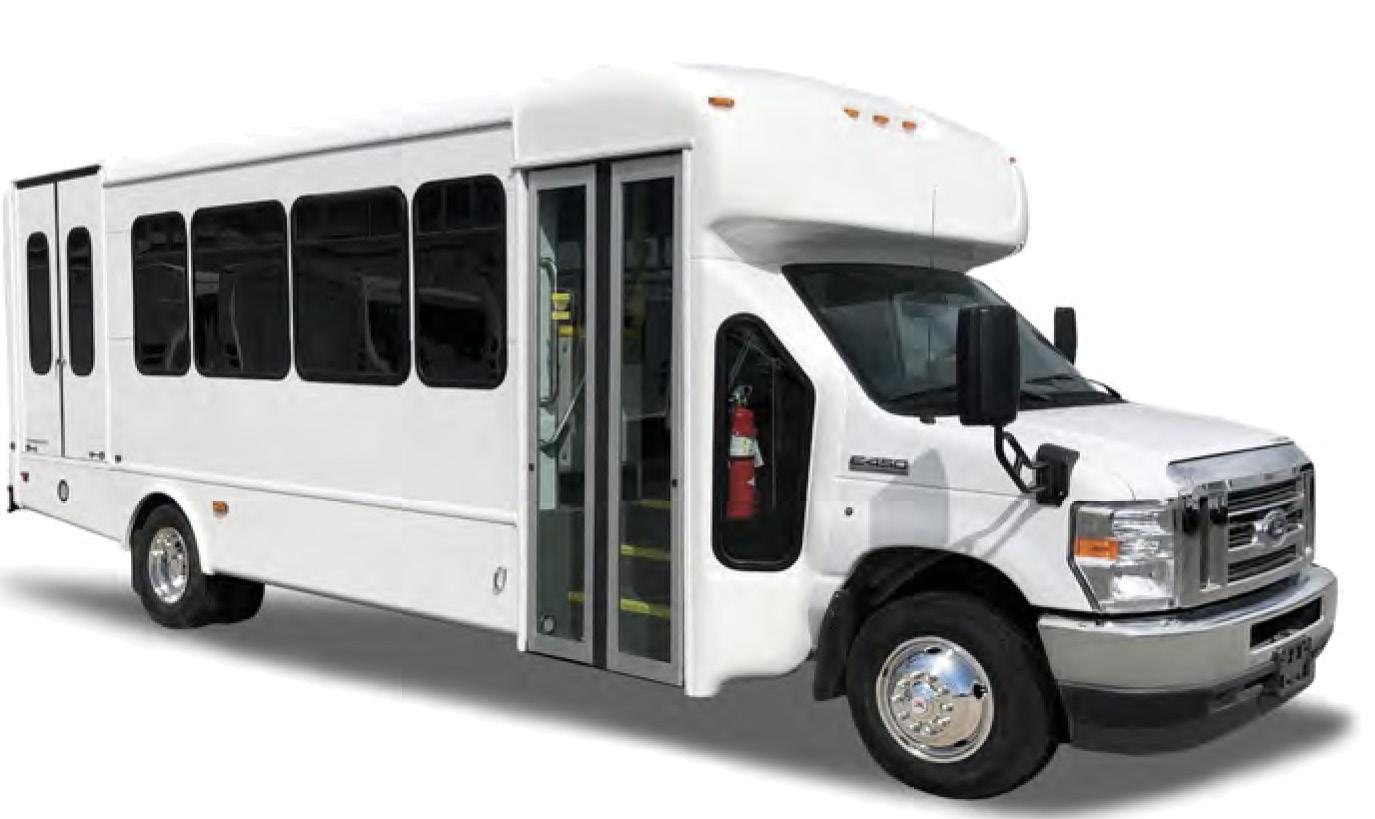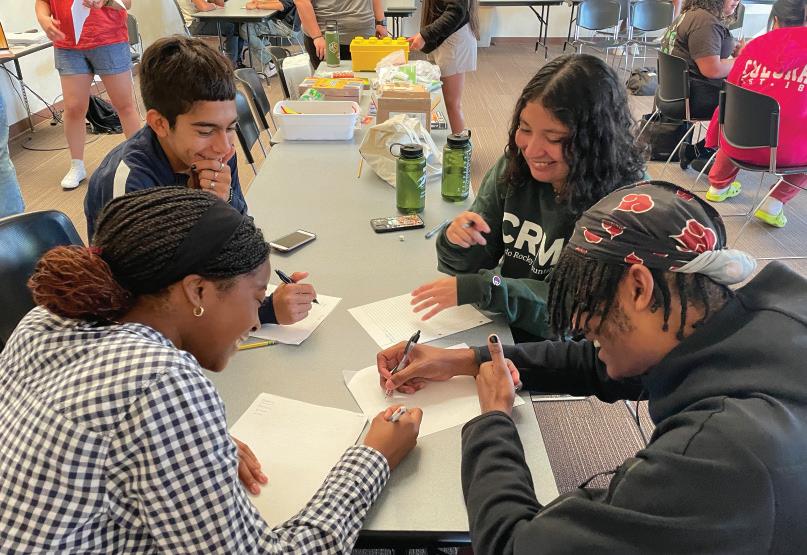3 minute read
2021-22 Impact Report
Next Article
Grants from Aspen Skiing Company Environment Foundation Assist CRMS’s Transition Away from Hydrocarbons
Heath K. Hignight
The CRMS Future Path vision of what students will need in the coming decades includes some important–and colossal–aspects. Among these is the ability to consider and address various global issues, including sustainability, environmental restoration and degradation, and climate change. Students should be versed in the science, politics, and technology that enable stewarding the world’s natural resources and can find ways to take meaningful action throughout their lives.
In the late 1990s, CRMS took its first step toward reducing its carbon footprint by partnering with Aspen Skiing Company Environment Foundation to install what was, at the time, the largest solar power array on the western slope. The array, which sits north of the Jossman academic building, is still in operation. It generates approximately 147 kilowatts of power for the school.
This journey of a thousand miles takes another important step this year with the help of a 3-phase power plug and a very important new bus.
CRMS partnered again with Environment Foundation on two grants to electrify the school’s bus fleet. In 2021, EF awarded CRMS a grant to help install a Level II grid-tied EV charging station, which complemented the installation of a two-outlet solar (PV) EV charging station. Installation of these charging stations was completed by the fall of 2021, enabling CRMS community members and visitors the option of charging their electric vehicles while on campus.

The second grant, received in June 2022, supports purchasing a 14-passenger EV bus.
With an ALT Fuels Vehicle Grant from the State of Colorado and generous donations from CRMS alumni and families, the Environment Foundation grant enabled the purchase of a $280,000 14-passenger shuttle EV bus. This bus replaces an existing dieselpowered bus in the CRMS fleet. One of our existing diesel buses will be removed entirely from the road as required to qualify for the state grant.
What does removing just one bus accomplish? In its first year of operation, the EV bus will take approximately 50 trips of 10 miles or more. With a range of 120 miles per charge, this EV bus will see significant use, and we can expect to consume 700 fewer gallons of diesel fuel in one year. Over its lifetime, this single bus will remove over 4,200 gallons of diesel consumption from the Roaring Fork Valley.
Hannah Berman, Senior Manager for Sustainability and Philanthropy at Aspen Skiing Company, says that in addition to the positive environmental impact of this grant, there’s an important long-term education and cultural benefit as well.
“Electrifying transportation infrastructure is a key piece to tackling climate change,” she said. “And CRMS’s electric school bus has the added benefit of educating young people about climate solutions.”
Due to the high cost of EV buses, full fleet conversion will take time and a lot of help from the broader CRMS community and its many wonderful partners like EF. Yet, it’s work that we must do. Here is an urgent need to normalize EVs as a preferred mode of personal and group transportation, beginning with one bus. CRMS students starting their high school journey this year will ride on an EV school bus for everything from local field trips to winter sports and activities on the mountain. Beginning this year, they’ll see that EVs are not reserved for personal transportation but can and should be an increasingly important mode of transit, including at their school.

